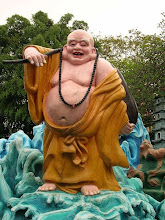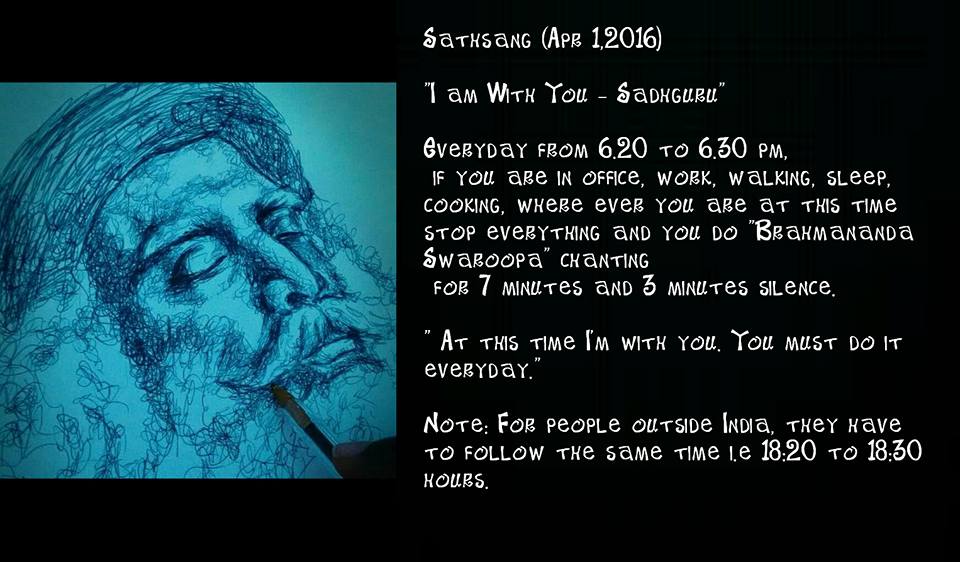
[A sannyasin asks for guidance on how to be choiceless where important decisions are needed.]
Osho – There is some subtle problem, and it comes to everybody who wants to remain choiceless. But there is a misunderstanding, that’s why the problem. Choicelessness does not mean that you will not have to choose. In life, in practical things, you will have to choose, you will have to decide. If you want to go somewhere you will have to decide whether to go by car or by plane or by train. And if you start calculating all the pros and cons, then by the time you decide you could have reached just by walking! It is sheer wastage. And you will have to decide – you cannot just leave it and you cannot remain choiceless. The practical thing will have to be decided.
About practical things when you are making decisions the only thing to be remembered is that they are trivia. Whether you go by train or by car or by plane does not matter really. So whatever you decide is okay; it doesn’t matter. There is no need to ponder over it so much; anything will do. But even when you choose there is no need to become too much attached to your choice – that’s what choicelessness is. There is no need to become too much attached to the choice. If somebody else is going by car and you are going by train, you need not declare that you are right and he is wrong. That means you have become attached to the choice. You are thinking it is very very important or something; you are making too serious an affair of it.
And if you choose to go by car and later on you find that it would have been better to have gone by train, then too there is no need to feel repentance and guilt about why you didn’t do that. By being choiceless it means that one has to choose, but one has to remain unattached… in practical things. About things which are not practical you can remain choiceless. About things which are beyond you you can remain choiceless; your choice is not needed.
For example, death. You have nothing to choose. It is going to happen some day, so it is okay. Love – you have nothing to do about it. If it happens, it happens; if it disappears, it disappears. It is not a practical thing. It is something mysterious and has nothing to do with you.
 So remain available to the mysterious and go on deciding about the practical and the mundane, but don’t get attached. For example, now you want to be here or you want to go. There is no need to be much worried about it. If you feel like being here – which feels more important – then be here. Nothing is lost, what can you lose? Maybe financially you will be a loser but spiritually if there is some gain you can stay. If you feel that there is no spiritual gain and you will be financially a loser, then why stay ? Go!
So remain available to the mysterious and go on deciding about the practical and the mundane, but don’t get attached. For example, now you want to be here or you want to go. There is no need to be much worried about it. If you feel like being here – which feels more important – then be here. Nothing is lost, what can you lose? Maybe financially you will be a loser but spiritually if there is some gain you can stay. If you feel that there is no spiritual gain and you will be financially a loser, then why stay ? Go!Things should be looked at like lightning, not in details, brooding about it and thinking about it and worrying about it. Just like lightning. If you feel that something important is happening here, which is more valuable than the financial loss – finished! Forget about it! Or if you think this can happen next time, there is no hurry and you are not in any impatience for your spiritual growth, there is no problem; you can simply go.
But whatsoever you do, remain unattached. If you stay here then don’t think that you have done something great; otherwise there will be attachment. If you go there, don’t start worrying that you have done something wrong; otherwise you become attached. And once you decide about practical things, do them and forget about them; no need to waste time.
People waste too much time before they do and they waste too much time after they have done. And almost ninety percent of energy is wasted in brooding, and that is the major part of life. Only ten percent of life is used in doing, and only doing can satisfy. That ninety percent is simply gone in the desert, down the drain.
So do whatsoever you feel like doing but don’t get attached to it. That is choicelessness in the ordinary, practical world. And there is a possibility also one day that by remaining choiceless about really essential things, you may decide to become choiceless about practical things also. That is the old concept of sannyas. People have lived that way also. They don’t decide at all.
 A certain kind of sannyasin exists in India called ’paramahansa’. He does not decide about even practical things. He decides not. He simply floats! There was a paramahansa in a town in which I lived for many days. A really great man but very difficult even to recognise, and he was really choiceless. If you held his hand and you took him to your home, he would go! He would not say, ’I was going somewhere else. Where are you dragging me?’ No, he would not say a single word; he would go with you. Many times he was stolen, because disciples and conflicts…
A certain kind of sannyasin exists in India called ’paramahansa’. He does not decide about even practical things. He decides not. He simply floats! There was a paramahansa in a town in which I lived for many days. A really great man but very difficult even to recognise, and he was really choiceless. If you held his hand and you took him to your home, he would go! He would not say, ’I was going somewhere else. Where are you dragging me?’ No, he would not say a single word; he would go with you. Many times he was stolen, because disciples and conflicts…So one disciple would just abduct him, and for months he would not be found. He would not say no to anybody! People would give him money so he would take it. He would not say no. Then somebody would come and snatch the money and he would not say no. Somebody would give and somebody would take away and he would be sitting there. Somebody would take hold of him and put him in the rickshaw and he would go to another town! And he lived that way for twenty years… and perfectly happy!
You can visualise his happiness. There was nothing to decide! Some day somebody brings food, it’s okay. Some day he has to fast, so he has to fast; there is no choice on his part. That too is a possibility, but I don’t suggest that right now.
Right now take decisions for your practical things and remain choiceless, detached. One day if you start growing, growing, one day it can happen. Then you can become absolutely choiceless; there is no problem in it. Many people have lived that way and have enjoyed great bliss. But I’m not saying that you have to go towards that. If it happens, it happens; the possibility is there.
But these people cannot be creative; that is the flaw. That’s why in india there have existed many saints and sages, uncreative – blissful of course, but of no use. They don’t bring any beauty to the world. Now this man lives in perfect peace but he brings nothing to the world; he shares nothing with the world. He will live and he will die as if he has never been born; he will not leave a trace. A few people can move that way, but my suggestion is that a person should be creative. And the joy of a creative person is far greater than the joy of a negative person who has simply dropped out.
 This is the real drop-out. In India these people have been worshipped – not wrongly: the worship is perfectly valid – but still, suggestion for a real sannyasin is that he should remain creative. So about practical things go on deciding, and for essential things remain available, allow them to happen. For the worldly be a doer and for the other-worldly be in a let-go. And that is the highest synthesis.
This is the real drop-out. In India these people have been worshipped – not wrongly: the worship is perfectly valid – but still, suggestion for a real sannyasin is that he should remain creative. So about practical things go on deciding, and for essential things remain available, allow them to happen. For the worldly be a doer and for the other-worldly be in a let-go. And that is the highest synthesis.Both things taken separately are easy. If you decide for the ordinary world, you would like to decide for the other world too; you would like to decide for everything, mm? That is the western attitude. Then it creates tension, anxiety, anguish, neurosis. The other alternative is: don’t decide for this world and don’t decide for that; remain choiceless for both. That is eastern. That too is simple but the person becomes uncreative. The person will never be neurotic but he will be uncreative. He will never be tense but he will not be a benediction to the world.
My effort here is to create a new kind of sannyasin who is a synthesis between east and west, who is as creative as van gogh or picasso but not neurotic at all, and who is as silent as ramakrishna or raman but not uncreative. This is my vision.
So certainly there will be problems because it is a dichotomy and you will feel many times: ’What to do? If I have to remain choiceless then what do do about this small thing?’ No, about small things you can decide, but don’t think that any decision has any value. It is just a practical decision. It is just as if you have to decide whether you sit here or you sit in that comer or in that comer. It makes no difference; you will be sitting anywhere anyway. And then there
will be no problem.
Source – Osho Book “Don’t Just Do Something, Sit There”


























No comments:
Post a Comment